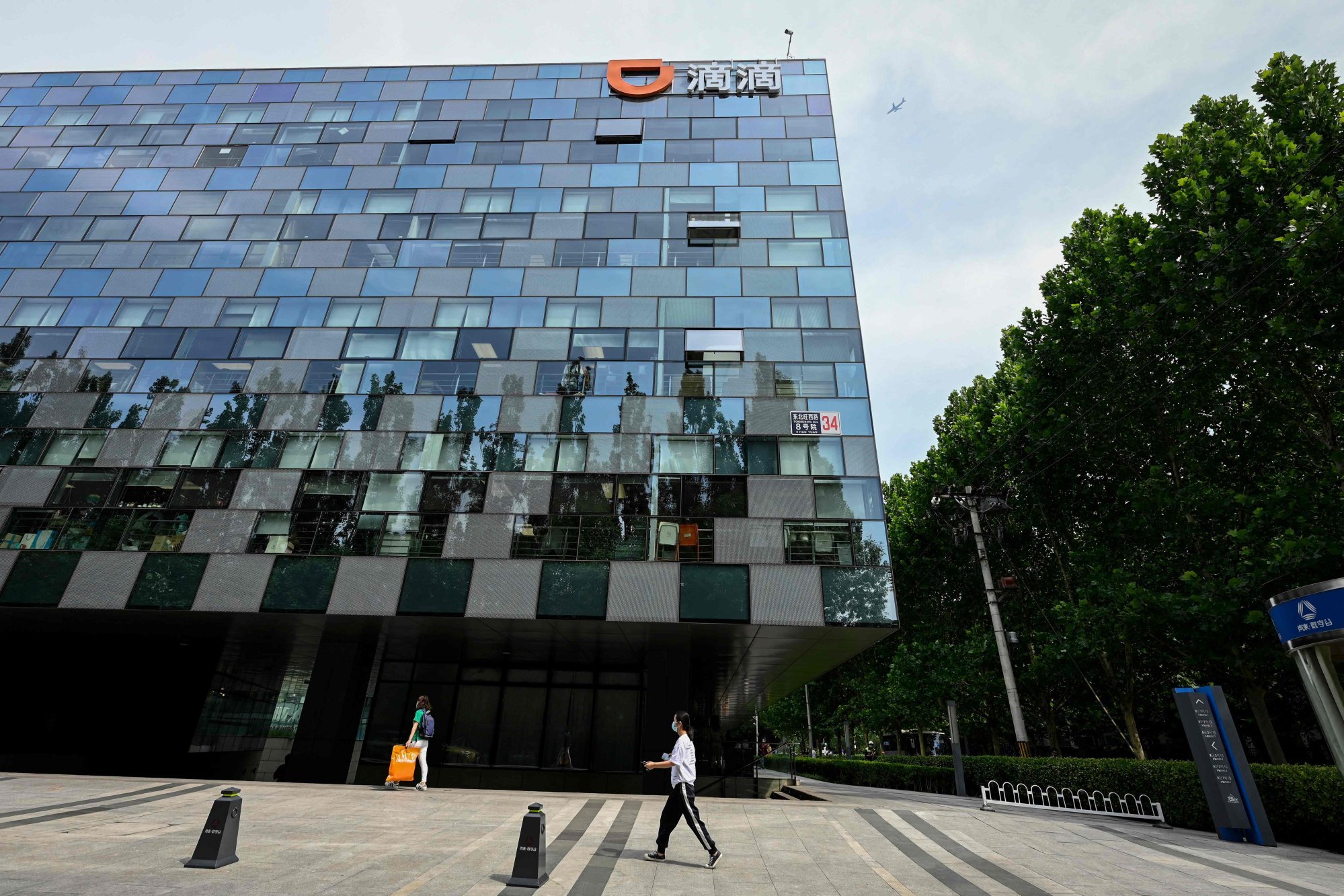
Didi’s relaunch of user sign-ups bodes well for its ride-hailing business, but regulatory scrutiny persists after tech crackdown
- The Beijing-based company has retained its leading position in the ride-hailing market during an 18-month absence from China’s app stores
- While Didi’s regulatory troubles are ‘reaching an end’, uncertainties linger as to how the government will enforce antitrust, algorithms and data rules
The Beijing-based company said on Monday that it was immediately resuming new user sign-ups with the approval of the cybersecurity regulator, ending a ban that started in July 2021. Its main app will soon become available on China’s app stores again, according to a person familiar with the matter.
The progress “undoubtedly sets a good start for [Didi’s] development this year”, said Liu Ying, an analyst from market intelligence Analysys.

She said that the company’s main business has been stunted by tightened regulations, as well as the Covid-19 pandemic, which has significantly weakened ride-hailing demand.
Meanwhile, some of its strongest rivals such as Meituan – the food delivery giant that expanded into Didi’s turf in 2017 – and T3 – a joint venture by three state-owned carmakers – saw their orders surge 63 and 103 per cent, respectively, during the same period.

Before the probe – which marked the first time Beijing had publicly launched an investigation into a tech company on the grounds of national security – Didi had a market share of over 90 per cent, according to Zhu Yiming, Greater China executive director of consultancy Frost & Sullivan.
After the authorities ordered the removal of Didi’s apps from the country’s app stores in July 2021, however, “the ride-hailing industry had a second chance in reshuffling”, said Zhu.
Still, “it will take a long time [for competitors] to catch up with Didi”, Analysys’ Liu said.
In December, T3 processed 54 million ride orders, while Meituan handled 12 million. Both were just a fraction of the 368 million orders that went to Didi, according to estimates by Analysys.
Didi “maintains its dominance” although rivals such as T3 and Cao Cao Mobility, backed by automaker Zhejiang Geely, have been striving to increase their share by offering vouchers or improving service quality, said Frost & Sullivan’s Zhu.

The approval from authorities for Didi to resume user registrations is not only “good news” for the company, according to Angela Zhang, an associate professor at the University of Hong Kong’s Faculty of Law.
“We are now seeing a mobilisation of bureaucratic efforts to revive the Chinese tech sector from various fronts,” she wrote in a Twitter post on Monday.
But while Didi’s regulatory troubles are “reaching an end”, uncertainties linger as to how the Chinese government will enforce rules in areas such as antitrust, algorithms and data, said Tom Nunlist, a senior analyst at consultancy Trivium China.
Earlier this month, the National People’s Congress – the nation’s top legislature – sat for a lecture by Peking University economics professor Huang Yiping on “the development and regulation of the digital economy”, in which he stressed the importance of antitrust.
Beijing “will not leave tech alone”, said Nunlist, but the “incremental moves towards implementing all the new laws and regulations will be ongoing”.

